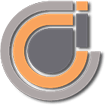Your BREAK THROUGH, Vol. 1, Post 21
I’d like to continue the discussion I began in February about what it means to enter into your career as a new professional. The more time I spend mentoring new professionals, and the more often I research best practices or experience events for new professionals, the more I find this to be one of the most pertinent topics of leadership. We must learn to thrive as followers in imperfect settings.
I attended a panel at Johnson & Wales University that included two national recruiters for major Colorado companies, and two experienced human resource professionals. The following is a summation of the consensus I heard from the panelists about how to approach the hiring process. What stands out most is that there isn’t one right way to do any of this, but the commonality between all the approaches is to step into the process with genuine enthusiasm, thorough engagement, and a willingness to work hard even in a position that maybe isn’t “your dream job.” And while I believe these skills, strategies, and approaches matter for most anyone in a professional setting, I think they have particular relevance for the Millennial Generation.
Resumes and Cover Letters
1) There are lots of different approaches and preferences out there: it’s best to get a lot of different advice and ideas, and then make both the resume and cover letter true to you.
2) Aesthetics, organization, and clear writing remain key.
3) Cover letters are important and should illustrate what you’ve done and what you’re capable of, AND where you want to head (why are you applying for the job you’re applying for?).
Interviews
4) Always bring your resume with you … it’s okay to have it in front of you for reference.
5) Generally, it’s acceptable to take notes during the interview so that you’re hearing questions properly, and so that when you ask questions of the interviewers, you can write down their responses.
6) First impressions matter … adapt that first impression to the culture of the organization you’re interviewing with (dress accordingly, demonstrate hospitality and enthusiasm, show professionalism, a positive attitude, balanced confidence, and an excitement for the organization).
7) Prepare for interviews by Googling potential questions like “Behavior-based interview questions” or “interview questions to ask teachers.”
8) When answering versions of the “what’s your greatest weakness” question, demonstrate how you’ve improved on your weaknesses in the past … how you’ve dealt with mistakes and overcome challenges … how you’ve worked with your supervisor to move past your shortcomings.
General
9) LinkedIn and industry-specific job boards are important, especially when complemented by industry-specific in-person professional networks (like the Young Nonprofit Network for nonprofit professionals).
10) Emotional Intelligence Assessments are being used more and more during interview processes … these leadership skills (considered “soft” skills) are as paramount to your success as technical (or “hard”) skills.
11) Always attempt to understand the culture of the organization you’re applying to and working for.
If you found this helpful, please share this post … if you have another idea or a dispute, please share that as well!

